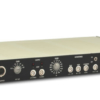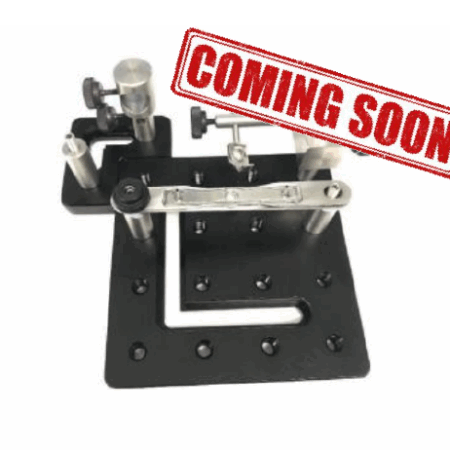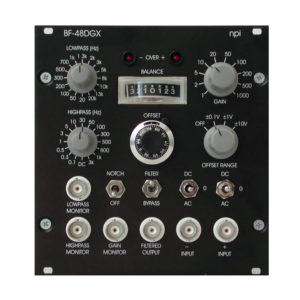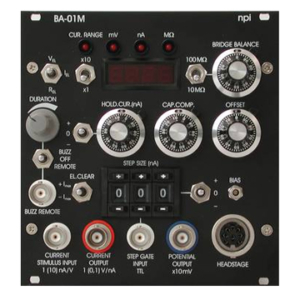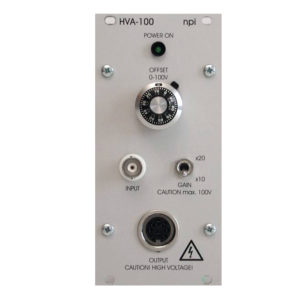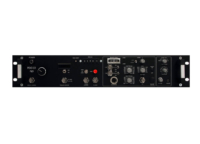Overview
The VA-10X is a sensitive (picoampere range) current amplifier that is intended for voltammetric measurements with carbon-fiber microelectrodes in biological systems, where the total currents do not exceed a few tens of nA.
It was designed at the Max-Planck-Institute for Experimental Medicine in Göttingen as an economically priced alternative to do-it-yourself systems and expensive commercial systems.
It can be used for either DC amperometry using the built-in voltage source, or it can be operated with user-supplied external voltage waveforms (e.g. for cyclic voltammetry).
The VA-10X is ideally suited for measurements from single cells plated onto glass cover slips and with carbon-fiber disk electrodes having diameters of 10 µM or less. npi recommends ALA CFE-2 carbon fiber electrodes. However, it can also be used for measurements made on superficially located cells in tissue slices.
The standard VA-10X is not recommended for use in in-vivo recordings with carbon-fiber electrodes having long cylindrical measuring surfaces, because in this case currents approach the µA range. Ask npi electronic for headstages with different feedback resistors.
Optionally, the VA-10X can be equipped with a frequency booster in order to enhance the bandwidth to several kHz.
The VA-10 is also available as module for the EPMS-07 system.
- Easy to use amplifier for voltammetric recordings
- Detect the smallest signals with picoampere range sensitivity
- FCV in the range of +/-1000 mV or +/-2000 mV
- Easy DC amperometry with built-in voltage source
- Connect carbon fiber electrodes
- In vivo recording with optional mini-heastages (also multi-channel)
- Also available as module for the EPMS-07 system
Last Updated on March 6, 2024

